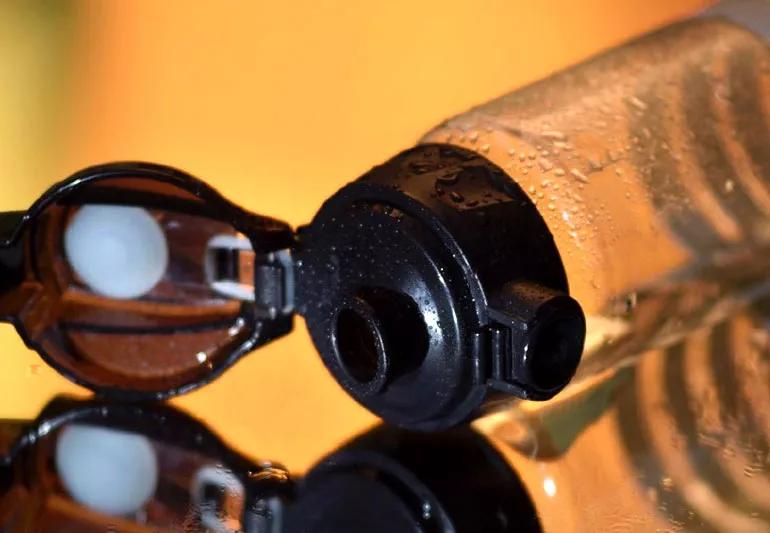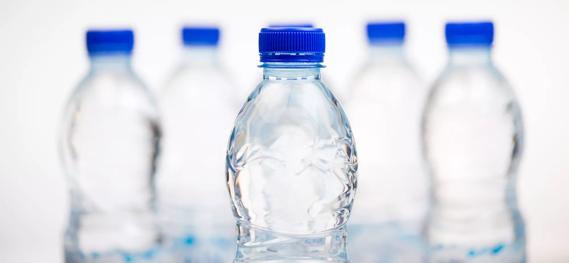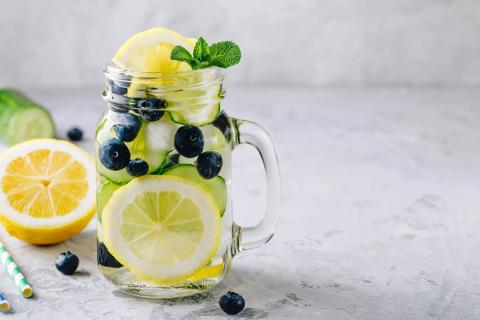What to know about this hydration trend

You’ve likely seen someone lugging around a gallon of water at the gym, school or work before. And sure, you understand the importance of staying hydrated, but is drinking a gallon of water a day really necessary?
Advertisement
Cleveland Clinic is a non-profit academic medical center. Advertising on our site helps support our mission. We do not endorse non-Cleveland Clinic products or services. Policy
Dietitian Beth Czerwony, RD, discusses what to know about this trend, how much water you should really be drinking and what factors influence your hydration levels. Plus, she offers practical advice about how to drink more water throughout the day.
“Drinking a gallon of water a day is not really necessary, but it’s not going to hurt you either,” says Czerwony. “Everybody’s hydration levels are different, but most people don’t need a daily gallon.”
Your body is incredibly efficient and will let you know when it is thirsty. People have different water needs based on their weight, activity level, how much they sweat, how hot it is, what medications they’re on and what they eat.
Obviously, everyone wants to avoid being dehydrated, but that doesn’t mean you have to fill up on 128-ounces of water every single day to avoid it. A good rule of thumb is to take a peek at the color of your pee. If you’re hydrated, it should be a light lemonade color, but it doesn’t necessarily need to be clear. If your pee is darker, that might be an indicator to up your water intake, but keep in mind that some medications (and even food) can affect the color too.
Everybody’s hydration levels vary, but the standard number to aim for is 64-ounces a day.
Advertisement
Your activity level, your location, your metabolism and your size should all be considered into this number as well. Some people naturally require more water than that, while others a bit less.
“I often tell patients that if you opt to drink a gallon of water a day – or just up your water intake in general – you’ll definitely get your steps in,” jokes Czerwony. “Obviously your body isn’t used to that level of water so you’re going to be running to the bathroom at lot more often when you first start.”
But there’s good news! As you drink more liquid, your kidney function and hormones will start to change and you’ll likely notice your body recalibrating and becoming more efficient at handling the high water volume.
You might even notice that your body will start to crave more water the more you drink. Just focus on drinking water steadily throughout the day instead of guzzling it all down in the evening. Your bladder will thank you!
Our bodies are made up of mostly water, so we need to stay hydrated to function properly. If we’re dehydrated, all sorts of weird things can start to happen.
Looking for some inspiration to chug? Czerwony breaks down why water is the holy grail for our bodies:
For most people, there is really no limit for daily water intake and a gallon a day is not harmful. But for those who have congestive heart failure or end stage kidney disease, sometimes water needs to be restricted because the body can’t process it correctly. Talk to your doctor about water intake if you or a loved one falls into this group.
It’s also worth noting that although it’s very rare, drinking too much water too quickly can be dangerous.
“Hyponatremia is when the sodium levels in your body drop too low because of too much water,” explains Czerwony. “Other conditions can trigger hyponatremia, but it can also be caused by consuming too much water in a very short amount of time. All of the water dilutes your sodium levels and your blood can become ‘watered down’.”
So how much is too much too soon? Think: chugging between 200 and 300 ounces of water in a few hours. In the past, kids and teens have called this “the water challenge” and it can be life-threatening.
If you’re committed to drinking more water, but aren’t ready to jump on board the gallon a day train, consider just upping your water intake.
Here’s how to drink more water throughout the day:
Advertisement
Advertisement

Sign up for our Health Essentials emails for expert guidance on nutrition, fitness, sleep, skin care and more.
Learn more about our editorial process.
Advertisement

Consumption needs vary based on activity, weather, metabolism and other factors

A glass of lemon water in the morning can help with digestion and boost vitamin C levels, and may even help get you into a better routine

Mold and bacteria in your reusable water bottle can cause health issues like infections, respiratory issues and allergic reactions

Sitting in the dry heat may help reduce stress, improve heart health and relieve pain

Adding salt to your water isn’t going to have measurable benefits — but there may be plenty of downsides

Drinking untreated water can have dangerous consequences, like bacterial infections

Although it adds to your hydration, this water may be pushing you over the limit of the daily recommended dosage of caffeine

If you’re trying to drink less soda or fewer sugary drinks, flavored water can be a delicious and healthy alternative

Even small moments of time outdoors can help reduce stress, boost mood and restore a sense of calm

A correct prescription helps your eyes see clearly — but as natural changes occur, you may need stronger or different eyeglasses

Both are medical emergencies, but they are very distinct events with different causes